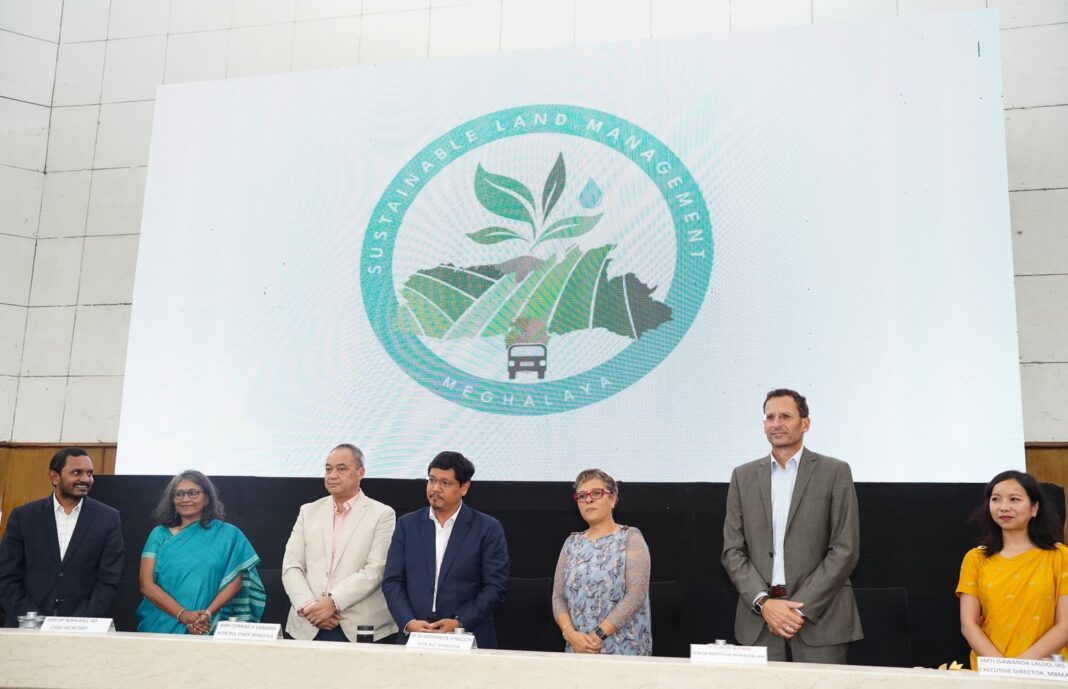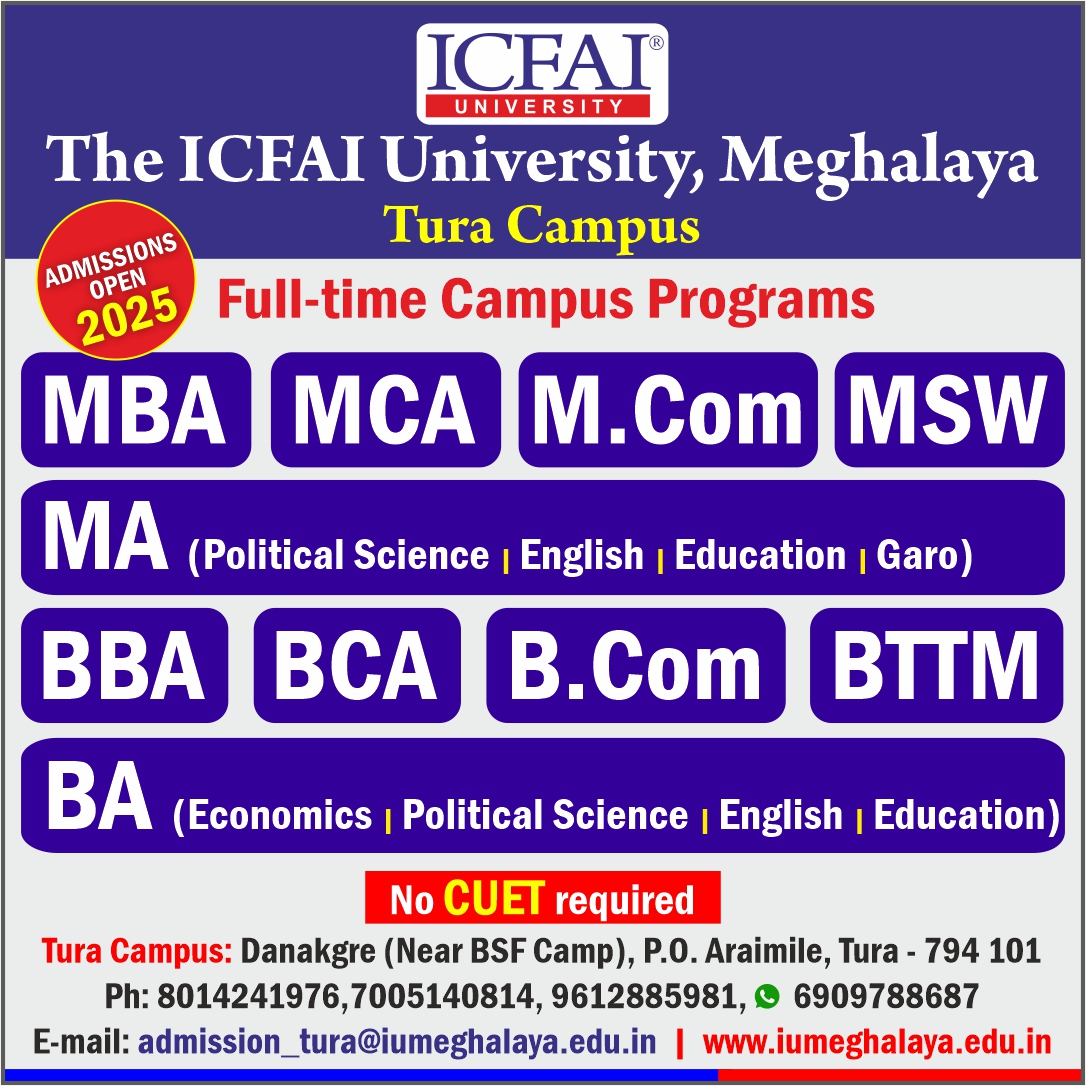Shillong, Oct 2: Aimed at promoting agroecological and natural/organic agricultural practices among Meghalaya’s farmers, Chief Minister Conrad K. Sangma formally inaugurated the Sustainable Land Management Meghalaya Project (SLM) and unveiled the Protection of Vulnerable Catchment Areas in Meghalaya (MegARISE) for the Umiew Catchment at a programme held at the State Convention Centre in Shillong on Tuesday.
Organized jointly by the Meghalaya Basin Management Agency (MBMA) and the Meghalaya Basin Development Authority (MBDA), these externally aided projects (EAP) are co-funded by Germany’s KfW Development Bank and the Government of Meghalaya.
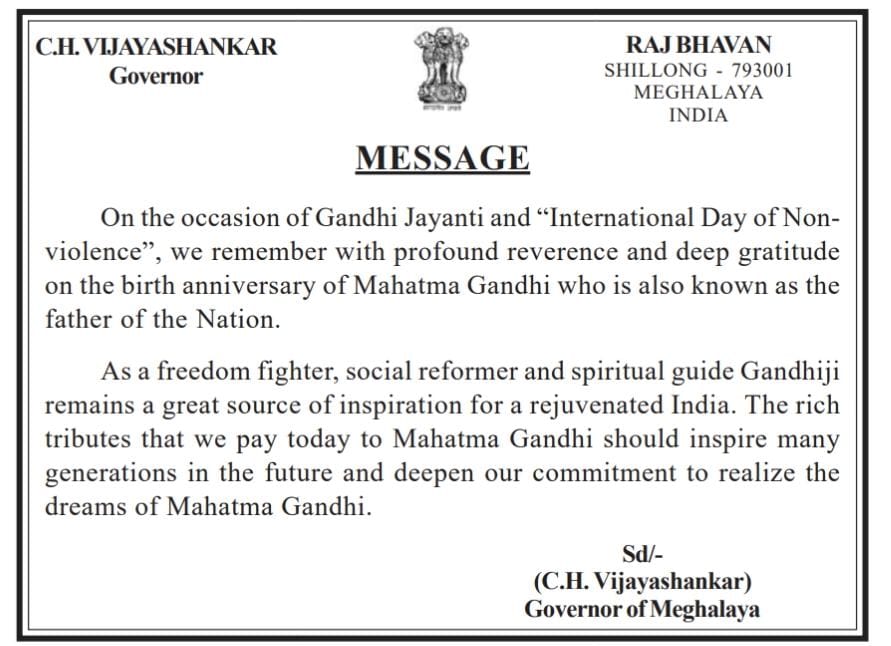
The programme saw the participation of about 400 people including community members, farmers, and farmer groups from several villages as well as representatives from various line departments and agencies of the State Government.
In his address, Chief Minister Sangma highlighted the importance of sustainable land management practices that would empower local communities while ensuring environmental conservation. He acknowledged that Meghalaya was endowed with rich biodiversity and cultural heritage, which necessitated a delicate balance between development and conservation. He pointed out that the KfW Development Bank-funded projects are a collaborative effort that brings together various stakeholders, including government agencies, local communities, and development partners. He emphasized the need for innovative approaches to address the challenges faced by farmers and communities in Meghalaya, while expressing confidence that these projects would provide the necessary tools and support to enhance agricultural productivity, improve natural resource management, and strengthen community resilience.
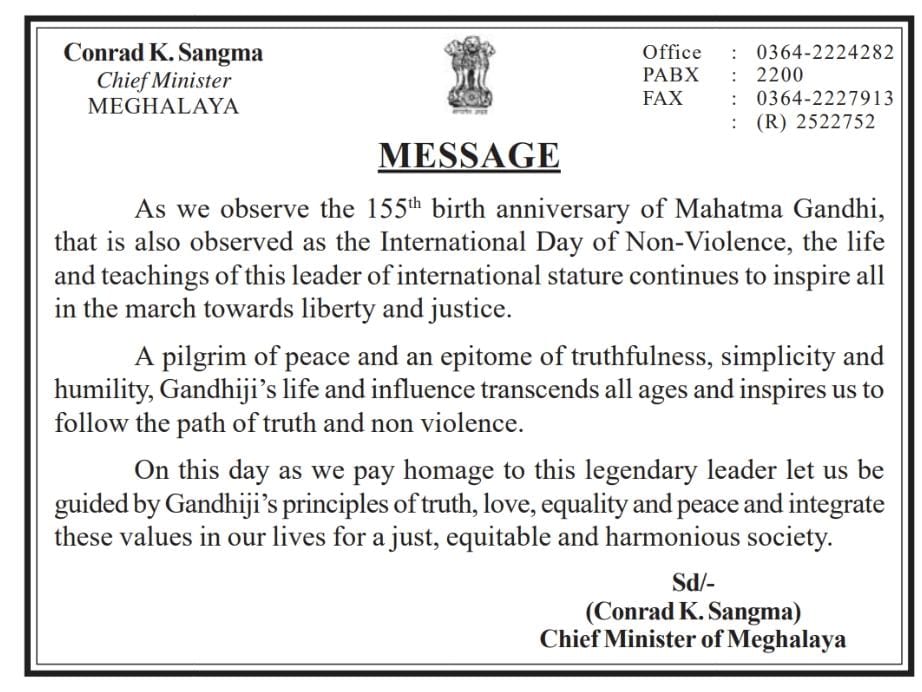
He noted that the successful launch of the SLM project and the unveiling of MegARISE were results of careful planning and preparation over the past 5-6 years. The current stage is critical as ground work would soon commence at full-scale to achieve the desired outcomes in line with the established targets.
Shifting focus, the CM underscored the urgent need for Meghalaya to grow its economy by 12%, with the goal of reaching a 10 billion economy by 2028. He affirmed that the government was committed to ensuring that this growth was responsible and sustainable.
While aspirations were high, he emphasized that attention to the environment and the welfare of communities and farming households remains paramount. Addressing socio-economic conditions, he touched upon the challenges posed by coal mining and the negative repercussions of the National Green Tribunal (NGT) ban. He underscored the importance of learning from past mistakes to prevent similar issues from arising in the future.
The Chief Minister expressed satisfaction in seeing projects take shape and conveyed eagerness for collaboration with stakeholders, farmer beneficiaries, and rural households.
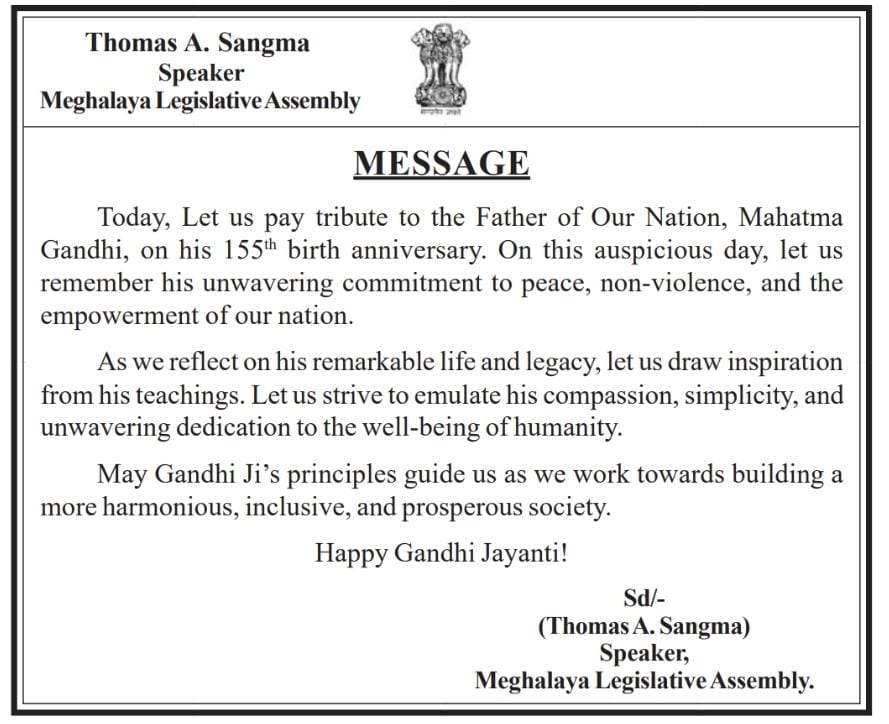
He assured that the Government of Meghalaya would support KfW and the implementing agencies to ensure that the projects are implemented earnestly and expressed hope for a long-standing partnership with KfW to achieve collective goals.
As part of the programme, three community members shared their experiences with farming. Teimon Shylla from the LIFE Spices Processing Cooperative Society Ltd. in Laskein and Laiwilberth Sangma from Jamge Nengbal, East Garo Hills, both spoke about the successes they achieved in farming with the support of the SLM project. The third speaker, Winchester Nongbet from Mylliem Block, shared his journey as a beneficiary of the MegARISE project.
Agriculture Minister Dr. M. Ampareen Lyngdoh expressed her delight at hearing the firsthand experiences of farmers, choosing to speak to the participants in Khasi to emphasize her pride in how far they have come. She reiterated the government’s full commitment to supporting farmers and expressed her gratitude for the collaboration between the Government of Germany and the Government of Meghalaya in this effort, noting that Germany, a much more developed country, is working alongside Meghalaya to uplift its farmers.
Dr. Lyngdoh clarified that EAPs are designed to improve the livelihoods and quality of life for future generations of farming households in Meghalaya. She highlighted the benefits of organic farming and the importance of discouraging the use of chemical fertilizers, educating farmers about the long-term sustainability and health of the soil. She assured the participants that the government does not intend to impose changes on their traditional practices but instead encourages them to embrace technology and community-led initiatives, leveraging their traditional methods to access better markets and improve their incomes.
She also emphasized that these practices will help mitigate the impacts of climate change on natural resources. Dr. Lyngdoh called for collaboration between farmers and the state government to ensure a better future for the next generation, protecting natural forests and resources. She urged farmers not to rely solely on the government for grievance redress but to work together in partnership, trusting in the support of international funding agencies such as KfW, which aims to empower farmers by creating or strengthening existing platforms for their benefit. By doing so, Meghalaya can become a model for sustainable agriculture and livelihoods, inspiring other states to adopt similar best practices.
Chief Secretary Donald Phillips Wahlang reflected on the challenges faced by the state since the 2015 ban on coal mining, which has resulted in substantial financial losses, particularly in royalties. By the time the new government took office in 2018, Meghalaya was grappling with a severe financial shortfall, struggling to fund even basic expenditures such as salaries. He highlighted the government’s innovative efforts to mobilize resources for development, particularly through externally aided projects (EAPs).
Wahlang expressed pride in Meghalaya’s achievement of having the highest number of EAPs as of 2024, crediting this to the collaborative efforts of the political leadership and government officials. He noted that these projects are the result of out-of-the-box solutions to the state’s financial challenges and represent an important step toward ensuring the development and sustainability of Meghalaya.
Dr. Florian Wieneke expressed pleasure in participating in the launch and emphasized KfW’s focus on climate action and environmental protection while highlighting the importance of these projects in tackling Meghalaya’s challenges like fragmented land, limited market access, and the need for better catchment management. Aligned with the global Sustainable Development Goals (SDGs), the projects also met local aspirations for self-reliance.
He noted the key achievement of BRDC’s accreditation as an Organic Certification Body, making Meghalaya the second state to achieve this after Sikkim. Dr. Weineke looked forward to the continued strong collaboration between KfW and the Government of Meghalaya.
Read: First International Coffee Day and Garo Hills Cooperative Foundation Celebrated in Babadam
WATCH:
Find latest news from every corner of Northeast India at hubnetwork.in, your online source for breaking news, video coverage.
Also, Follow us on-
Twitter-twitter.com/nemediahub
Youtube channel- www.youtube.com/@NortheastMediaHub2020
Instagram- www.instagram.com/ne_media_hub
Download our app from playstore – Northeast Media Hub



